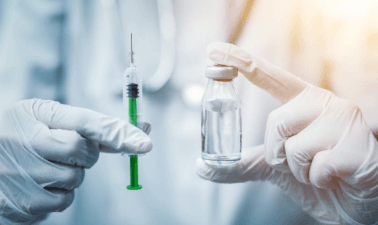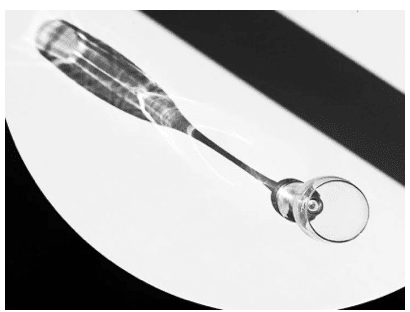New research shows that a new cancer vaccine may be effective for treating a range of HER2-positive cancers, including the more aggressive HER2-positive breast cancer.
In HER2’s role as a growth factor, normal levels of it help regulate the growth of cells.
That being said, excess amounts of the protein help cancer cells multiply and spread more quickly.
This makes HER2-positive breast cancer more aggressive than the HER2-negative type.
Breast is not the only cancer that can be HER2-positive; bladder, pancreatic, ovarian, and stomach cancers can also be HER2-positive.
A new study posits a possible new treatment for this cancer. Scientists led by Dr. Jay A. Berzofsky, the chief of the Vaccine Branch at the Center for Cancer Research at the National Cancer Institute (NCI) in Bethesda, MD, have come up with a cancer vaccine that demonstrated clinical benefit for people with HER2-positive cancers.
Dr. Berzofsky and his team presented the findings at the fourth CRI-CIMT-EATI-AACR International Cancer Immunotherapy Conference: Translating Science into Survival, held in New York City, NY.
Vaccine worked in over half of the patients
The investigators used immune cells taken from the blood of 17 cancer patients, and they modified them in the laboratory. The final vaccine contained the patients’ own dendritic cells that were genetically altered with an adenovirus to recreate fragments of the HER2 protein.
As part of the trial, the scientists administered the vaccine to the participants at the beginning of the study and at weeks 4, 8, 16, and 24.
Six of the participants received the lowest dose of the vaccine (5 million dendritic cells in one shot) and 11 participants received 10 or 20 million dendritic cells.
Participants in the lowest-dose group did not benefit from the vaccine. However, of the 11 who received a higher dose, six responded to the treatment.
More specifically, one person with ovarian cancer had a complete response to the treatment, and the benefits lasted for 89 weeks. Another patient with stomach cancer responded partially to the treatment, benefiting from the vaccine for 16 weeks.
Finally, four remaining participants had stable disease as a result of the treatment. Two of these patients had colon cancer, one had prostate cancer, and another one had ovarian cancer.
The vaccine did not cause any adverse reactions that required treatment.
“Based on the current safety and clinical benefit data,” says Dr. Berzofsky, “the dose of the vaccine was increased to 40 million dendritic cells per injection, and the trial opened to patients who have previously been treated with a HER2-targeted therapeutic, including patients with breast cancer.”
He continues to explain the benefits of using the immune system in the fight against cancer, saying, “Immunotherapy marshals the exquisite specificity of the immune system to destroy cancer, and some types may have potentially fewer side effects than traditional chemotherapy.”
“We are using a vaccine approach to generate an immune response to HER2,” he goes on, “which is found at high levels on and drives the growth of several types of cancer, including breast, ovarian, lung, colorectal, and gastroesophageal cancers.”
“Our results suggest that we have a very promising vaccine for HER2-overexpressing cancers […]. We hope that one day the vaccine will provide a new treatment option for patients with these cancers.”
Dr. Jay A. Berzofsky
The researcher, however, points out some limitations to the current trial, such as the small size of the sample and the lack of a placebo group.
“Moving forward, we would like to investigate whether we can increase the proportion of people who benefit from treatment with the vaccine by combining it with checkpoint inhibitor therapy,” adds Dr. Berzofsky.
How many pounds have you lost this month? At Dieta Efectiva you can lose 10-12 lbs your first week and 2-5 lbs every week after. Visit us dietaefectiva.netto learn more about our program.







